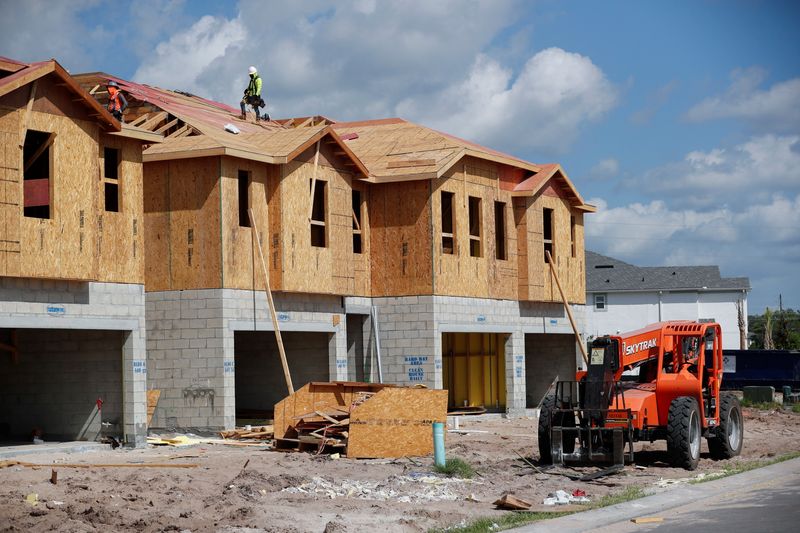By Hari Kishan
BENGALURU (Reuters) - Rocketing U.S. house price rises will accelerate more slowly in 2022, halving this year's double-digit pace but still climbing much faster than experts predicted three months ago, according to a Reuters poll of analysts who said homes would get even less affordable.
Record low interest rates and home workers seeking bigger living spaces have ratcheted up housing demand at a time when affordable homes are scarce.
Other Reuters polls this month also showed house prices in Australia, New Zealand, and Canada would also rise in double digits this year and then slow in 2022.
The 30 housing analysts polled Aug. 10-25 lifted the average prediction to slightly over 14% U.S. house price inflation this year, up from May's 10.6% forecast. They predicted a rate of 6.7% next year, up a bit from 5.6% predicted previously.
If realized, the 2021 median projection would be the highest full-year rise in house prices since 2005, right before the global financial crisis that was triggered by an overinflated housing market.
"The biggest issue we have is a lack of supply of housing to buy. We still have far more demand than there is supply," said Matthew Gardner, chief economist at Windermere Real Estate in Seattle.
"So the idea we're going to get back to some form of a balanced market won't happen this year. I'm hopeful we may get towards it, or closer towards it in 2022."
There are already signs the market is cooling. But even the near-halving predicted in the rate of inflation next year would still have house price rises far outpacing wage growth and overall inflation, making homes even less affordable.
Over 60% of analysts who answered an additional question, 16 of 26, said affordability would worsen in the next two to three years. Six said it would stay the same while only four expected affordability to improve.
"The shortage of homes for sale and related deteriorating affordability present the biggest risk to home sales. Supply constraints, of materials, lots and labor are preventing more construction. Some of these constraints, including shortages of labor and lots, pre-date the pandemic," said Gregory Daco, chief U.S. economist at Oxford Economics in New York.
The trouble, as ever, is there are not enough affordable homes to buy, especially for young people looking for their first home.
New home sales are concentrated in the $200,000-$749,000 price range, according to the latest data. Sales in the highly sought-after under-$200,000 price bracket accounted for a mere 1% of transactions.
"My biggest issue is the fact we are not addressing the entry level housing market. We have about 9-1/2 million millennials turning 30 over the course of the next couple of years," added Windermere's Gardner.
That leaves many people renting. Among 24 analysts who answered an additional question, 12 predicted U.S. residential rents will rise between 2%-5% over the next 12-months and 10 were penciling in a 5%-10% increase.
One analyst said rents would go up less than 2% and a lone voice expected them to fall.
Benchmark interest rates, expected to stay near zero through all of next year, keep providing a big impetus for those who can afford to borrow. [ECILT/US]
Asked about the biggest downside risk to the housing market outlook over the next 12 months, analysts' top three picks were: higher interest rates or tighter monetary policy; the spread of new coronavirus variants; a slowdown in economic growth.
(For other stories from the Reuters quarterly housing market polls:)
